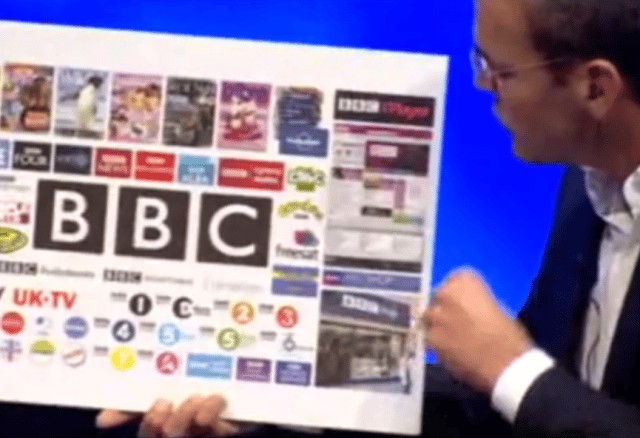
Some of the BBC’s online cuts (see full list) are not as deep as they might first appear – but the Putting Quality First strategy package nevertheless represents BBC Online’s first significant reining in of itself.
“We’re going from 400 websites to 10 products,” Erik Huggers told press on Monday. In fact, many of the 173 BBC.co.uk directories which will be closed were mothballed long ago.
“If you think about BBC Online today,” Huggers said, “it is a couple of very successful web properties and literally hundreds of sites that have very little traction, have very little public value, reach or quality.” Even staffers affected by the news concede the service houses some small sites which have miniscule audience figures.
The new strategy signals an end to these many, little, standalone pages’ proliferation. Online-only material will become rarer and remaining programme-related material will become more template-driven. As hard as it is for affected staff to hear it, this “automation”, as Huggers puts it, will save on labour costs – yet is another thing the BBC had already embarked on, by previously tying together its Programmes database and iPlayer.
“With modern technologies, you can create exciting, modern websites using a fully automated capability,” Huggers said. Despite cuts, then, a big new web infrastructure project will now be necessary, going from over 30 content management systems to just a handful. In some cases, content from mothballed sites will be transferred to new sites.
In these senses, the announcement is what cynics might call a classic BBC fudge – what it giveth away with one hand, it taketh back with the other.
But, if some of the measures are merely accelerations of sensible housekeeping exercises using latest technology, others along the spectrum are somewhat bolder.
They mean…
- stepping way back from being a community host (a role it once saw as a hallmark of online public service)
- slimming down of radio websites in to listings sites that support live shows
- separating of the radio portfolio out of iPlayer
- exiting from initiatives like Blast, Switch and, after many years on life support, Video Nation.
As well as merging some of its English BBC Local sites to match BBC Local Radio areas, the BBC even says it will disappear its nations websites (eg. /scotland/) in favour of a single BBC homepage that itself will cleverly surface geo-personalised material to visitors – a policy that will prove so unthinkable in those nations, it’s likely to be met with considerable resistance.
It’s these which are the emblematic measures, signifying the end of an era in which online was considered the BBC’s “third medium” after TV and radio, one which should offer its own, web-centric take on the BBC’s core mission to educate, inform and entertain…
At a time when Channel 4, too, has pulled its websites back toward its core aims, and when the UK government is cutting back to fundamentals, BBC Online is now a highly popular mainstream medium in its own right – but one which, save for a few key services, is part and parcel of the broadcast experience.
“It’s not shadow boxing – it’s real,” director-general Thompson said. “It’s doing fewer things better.”